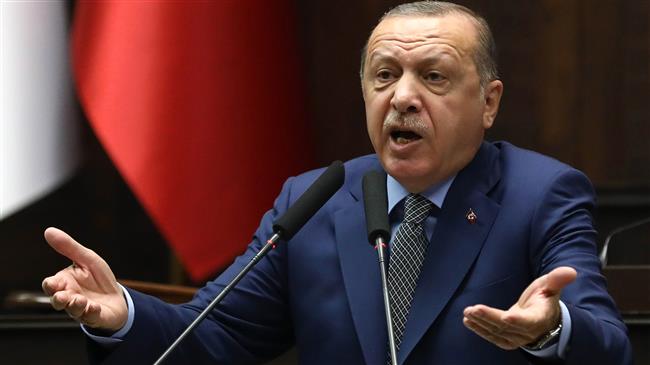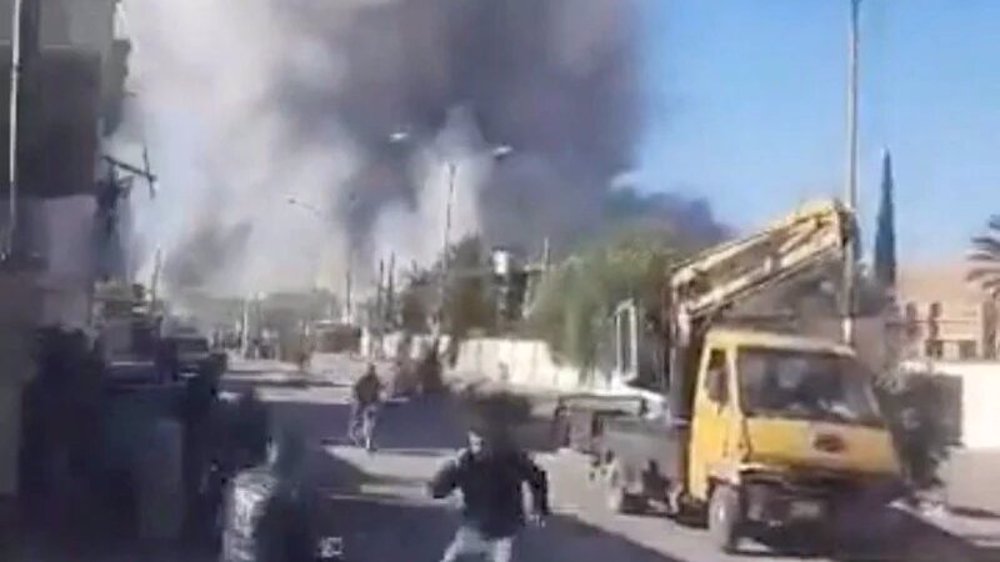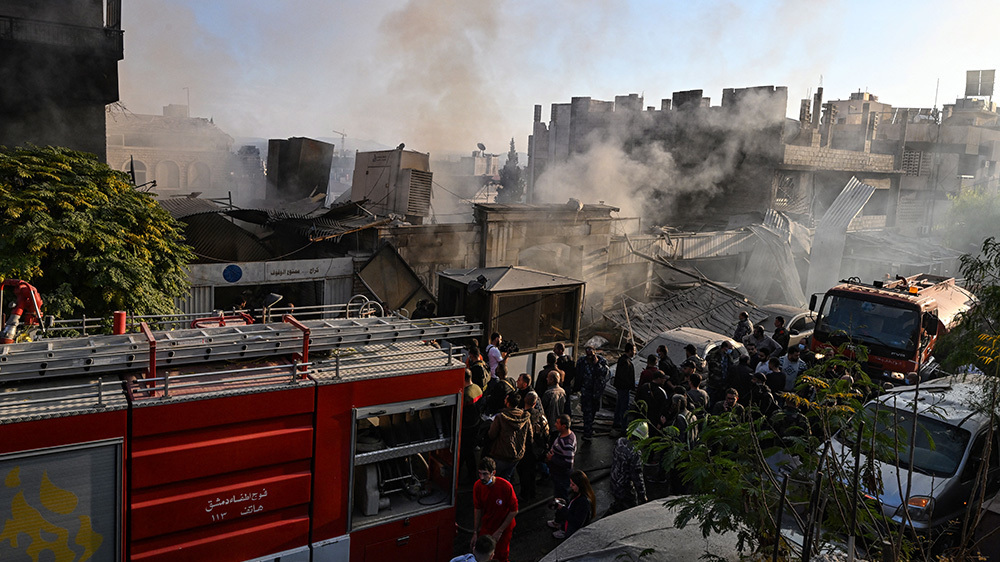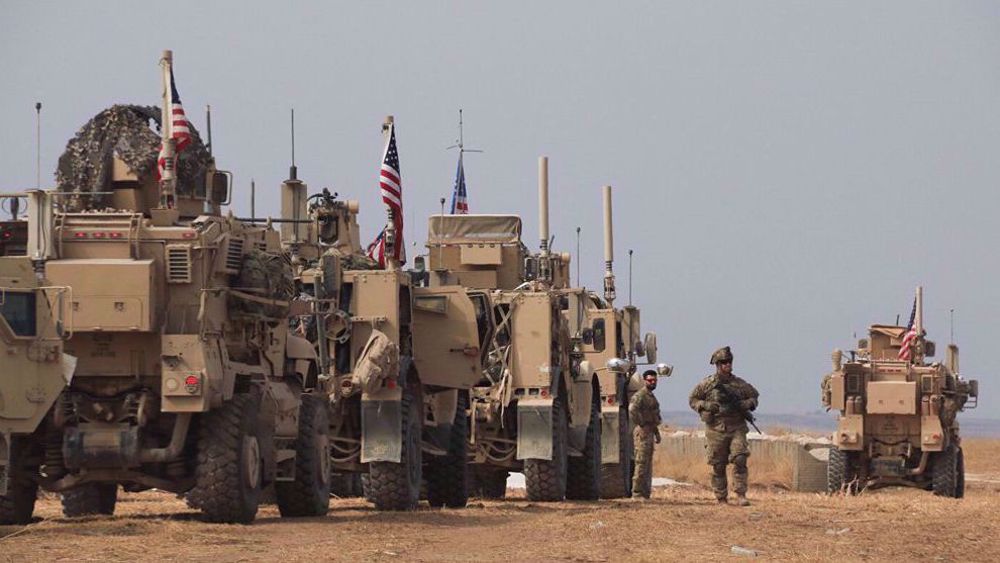Turkey to launch larger operations in northern Syria: Erdogan
Turkish President Recep Tayyip Erdogan says Ankara will soon launch larger operations east of the Euphrates River in northern Syria, where it has been confronting US-backed Kurdish militants.
“Our preparations and plans [for an operation] are done, we will soon bring down the terror formation east of the Euphrates,” Erdogan said in a speech to members of his Justice and Development Party (AKP) on Tuesday.
He said the Turkish military had already started an intervention against the "terrorists" in the area.
His remarks came two days after state-owned Anadolu news agency said Turkish forces had bombarded the positions of Syrian Kurdish militants, known as the YPG, on the eastern banks of the Euphrates.
Ankara considers the US-backed YPG to be a terrorist group and an extension of the Kurdistan Workers’ Party (PKK), which has been fighting for independence in Turkey’s largely Kurdish southeast since 1984.
Turkey first deployed forces to northern Syria in 2016 to repel the YPG under the banner of the so-called “Operation Euphrates Shield.”

The Turkish incursion in Syria’s northwestern region of Afrin started after the United States said it sought to set up a thousand-strong force in Syria near the Turkish border comprising the so-called Syrian Democratic Forces (SDF), which is led by the YPG.
Syria views the Turkish military intervention as a violation of its sovereignty, and has repeatedly called on Ankara to pull its forces out.
Turkey, however, has vowed to press ahead with attacks on the positions of the YPG.
Syria, Turkey spar over Idlib deal
In another development, Syrian Foreign Minister Walid al-Muallem accused Turkey of failing to meet the obligations set out in an agreement with Russia to create a demilitarized buffer zone to separate Syrian government troops from Takfiri militant groups in the northwestern province of Idlib.

Syrian Foreign Minister Walid al-Muallem (By AFP)
“The terrorists still exist with their heavy arms in this region and this is an indicator of Turkey's unwillingness to fulfill its obligations,” Muallem said in Damascus, according to Syria’s official news agency SANA.
The agreement, which was reached between the Turkish president and his Russian counterpart Vladimir Putin in the Black Sea resort of Sochi in September, staved off a major government offensive into the militant-held region.
Under the deal, a demilitarized zone of 15-20 kilometers will have to be created in Idlib along the contact line between the militants and government troops by October 15.
The deal also involves the withdrawal of “radically-minded” militants, including the al-Qaeda-linked ones, from the region.
Damascus has vowed to recover “every inch” of Syria, including the Idlib region.
Turkey’s foreign minister, however, said on Tuesday that the implementation of the deal was continuing according to plan.
Mevlut Cavusoglu, who was speaking at a joint news conference with his Azeri and Iranian counterparts in Istanbul, also said that if terrorists or radical groups in Idlib displayed a “different approach” to that of the agreement, Turkey would intervene.
Meanwhile, Kremlin spokesman Dmitry Peskov said that Turkey was doing its best to fulfill its difficult obligations in Idlib, but that “not everything was going as it was planned.”
Russia did not see a threat that the agreement would fail, he added.
On Saturday, the leaders of Germany, Russia, France and Turkey at a quadrilateral summit on Syria in the Turkish city of Istanbul stressed the importance of a lasting ceasefire in Syria, and said a committee to create a new constitution should meet by the end of the year.
Peskov said Moscow would inform Syrian officials about the outcome of the top-level summit.
Erdogan also said on Tuesday that Turkey would ensure a more active international role in Idlib after the four-way summit.
Turkey, Iran and Russia are the guarantors of a countrywide ceasefire in Syria. The three have been mediating a peace process since January 2016 among Syria’s warring sides in Astana, Kazakhstan.
Turkey has set up a series of observation posts in Idlib as part of the deal to reduce fighting between militants and the Syrian government in de-escalation zones.
The strategic Syrian province of Idlib hosts several militant groups backed by Turkey and other foreign parties – especially Western states, Israel and their regional allies.
In recent weeks, the Syrian army has been preparing for the liberation of Idlib, drawing support from Iran and Russia, but concerns from Turkey. Ankara fears a fresh influx of Syrian refugees in the wake of the Idlib battle.
VIDEO | COP29: another climate failure?
ICC issues arrest warrants for Netanyahu, Gallant for war crimes
Israeli strikes kill 88 Palestinians in northern Gaza
American voters plainly rejected complicity in Gaza genocide: Iran FM spox
ICC should issue more arrest warrants for Israeli authorities over Gaza genocide: UN expert
Israel using AI weapons co-produced by India in Gaza genocide: Report
Israel issues new evacuation orders, shortly launches strikes on southern Lebanon
VIDEO | Press TV's news headlines










 This makes it easy to access the Press TV website
This makes it easy to access the Press TV website